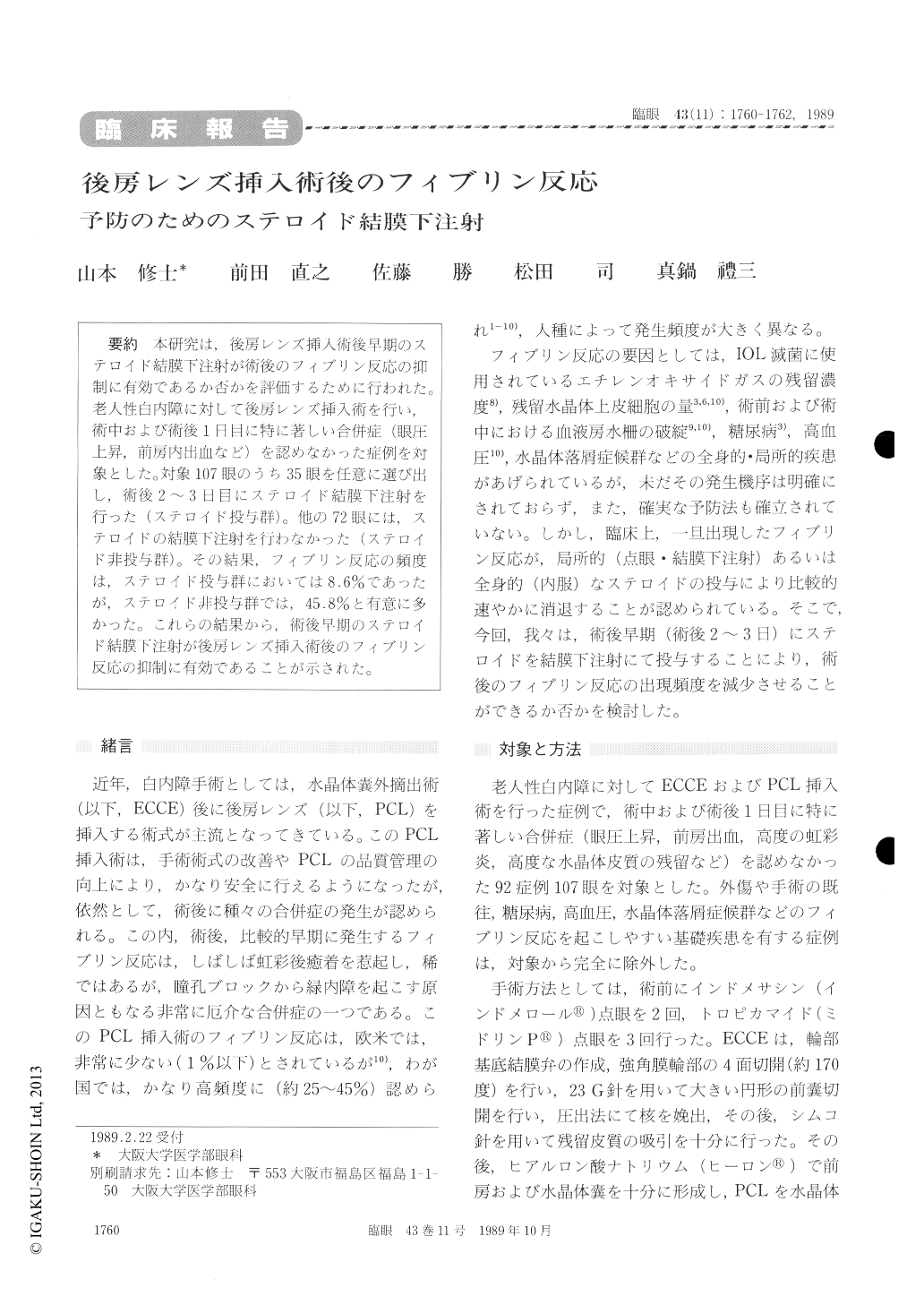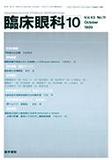Japanese
English
- 有料閲覧
- Abstract 文献概要
- 1ページ目 Look Inside
本研究は,後房レンズ挿入術後早期のステロイド結膜下注射が術後のフィブリン反応の抑制に有効であるか否かを評価するために行われた。老人性白内障に対して後房レンズ挿入術を行い,術中および術後1日目に特に著しい合併症(眼圧上昇,前房内出血など)を認めなかった症例を対象とした。対象107眼のうち35眼を任意に選び出し,術後2〜3日目にステロイド結膜下注射を行った(ステロイド投与群)。他の72眼には,ステロイドの結膜下注射を行わなかった(ステロイド非投与群)。その結果,フィブリン反応の頻度は,ステロイド投与群においては8.6%であったが,ステロイド非投与群では,45.8%と有意に多かった。これらの結果から,術後早期のステロイド結膜下注射が後房レンズ挿入術後のフィブリン反応の抑制に有効であることが示された。
We performed a prospective randomized study to evaluate the value of subconjunctival steroid injec-tion during the early postoperative period in preventing fibrinous reaction after posterior cham-ber lens implantation surgery. A total of 107 eyes with senile cataract which underwent uncomplicat-ed intraocular lens implantation served as material of study. These eyes were randomly assigned either to steroid-treated group or to control. The former consisted of 35 eyes and received subconjunctival dexamethasone for 2 or 3 days after surgery. Eyesin the control group did not receive subconjunctival steroid. All the 107 eyes were treated with betamethasone eyedrops during the postsurgical period. The incidence of fibrinous reaction was 8.6% in the steroid-treated group and 45.8%in the control. The difference was highly significant (p< 0.001). The results show the beneficial effect of subconjunctival dexamethasone in suppressing fi-brinous reaction following posterior chamber lens implantation surgery.

Copyright © 1989, Igaku-Shoin Ltd. All rights reserved.


